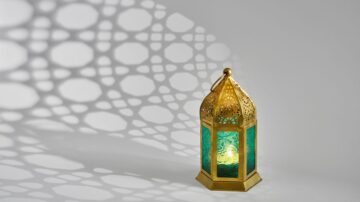Understanding the Power of Faith in Islam
Every sealed lock has its specific key to be unlocked. No matter how hard one tries to unlock it using an unsuitable key, all efforts will be in vain. Similarly, the key to the Muslim personality is faith—the core of Islam.
With this faith, the Prophet’s Companions and early Muslims brought the world out of darkness and into light. They transitioned from the tightness of this world into the vastness of both this life and the hereafter, and from the injustices of false religions to the perfect justice of Islam. This was famously declared by the Companion Ribi ibn Amir before Khosrau, the king of Persia, one of the era’s greatest powers.
How Faith Transformed Early Muslims
The Prophet Muhammad’s Companions and early Muslims used faith to bring the world from darkness into light, from the limitations of this world to the vastness of the present and the hereafter. Through Islamic faith, they moved from the injustice of false religions to the perfect justice of Islam. This sentiment was powerfully expressed by Ribi ibn Amir before Khosrau, the Persian king.
Faith and Historical Victories
- Victory Over the Crusades: Faith empowered Muslims to repel the Crusaders in nine consecutive crusades. Despite Europe’s formidable efforts to seize Muslim lands in the name of Christ, Muslims stood firm, and it’s important to note that Christ, the messenger of Allah, is innocent of the atrocities committed in his name.
- Defeating the Tartars: In the 13th century, Muslims from Egypt and the Levant, under the leadership of Al-Muzaffar Sayf al-Din Qutuz, overcame the Tartars who had ravaged parts of Asia and Europe. Their cry for Islam, “wa islamah” (Oh my Islam!), marked the power of faith in these battles.
The Essential Role of Faith in Human Life
When asked, “What does a person need most?” the answer is often “to feel one’s humanity and dignity and to achieve happiness in this life and the hereafter.” These aspirations can only be fully realized through faith in Allah and by fulfilling the true meaning of servitude to Him.
The Process of Change Through Islamic Faith
Reforming individuals and communities isn’t a random process. Genuine change requires a deep-rooted transformation, which can only happen through a prolonged process of education or radical change. As the Qur’an states:
“Lo! Allah changeth not the condition of a folk until they (first) change that which is in their hearts.” (Ar-Ra`d 13: 11)
This change is complex and continuous, achievable only through faith in Allah the Almighty. Faith acts as the catalyst for profound personal and communal transformation.
Faith Transcends Age and Conditioning
Interestingly, faith does not conform to the age or developmental stages emphasized by psychologists. While some argue that early childhood is the only time to mold habits and behavior, Islamic faith has the power to transform individuals at any stage of life. A poet once said:
“Faith, if penetrated into one’s soul, would change one’s attitude towards the Creator and the creation.”
Faith in Action: The Story of Pharaoh’s Sorcerers
An example of faith’s transformative power is the story of Pharaoh’s sorcerers, as narrated in the Qur’an:
And when the wizards came they said unto Pharaoh: Will there surely be a reward for us if we are the winners?
He said: Aye, and ye will then surely be of those brought near (to me).
Moses said unto them: Throw what ye are going to throw!
Then they threw down their cords and their staves and said: By Pharaoh’s might, lo! We verily are the winners.
Then Moses threw his staff and lo! It swallowed that which they did falsely show.
And the wizards were flung prostrate. Crying: We believe in the Lord of the Worlds. The Lord of Moses and Aaron.
(Pharaoh) said, Ye put your faith in him before I give you leave. Lo! He doubtless is your chief who taught you magic! But verily ye shall come to know.
Verily I will cut off your hands and your feet alternately, and verily I will crucify you every one.
They said: It is no hurt, for lo! Unto our Lord we shall return. Lo! We ardently hope that our Lord will forgive us our sins because we are the first of the believers.” (Al-Shu`ara’ 26: 41-51)
The sorcerers’ transformation was profound. Before embracing faith, they sought material rewards and power from Pharaoh. After accepting faith, they found the courage to stand against Pharaoh’s threats, proclaiming:
“We choose thee not above the clear proofs that have come unto us, and above Him Who created us. So decree what thou wilt decree. Thou wilt end for us only the life of the world.” (Taha 20: 71-73)
`Umar ibn Al-Khattab: A Transformation Through Faith
Another powerful example of the transformative power of Islamic faith is the story of Umar ibn Al-Khattab. Known for his initial cruelty, Umar tortured early Muslims and even set out to kill the Prophet. However, after reading verses from Surat Taha, faith penetrated his heart and soul.
This faith-driven transformation led him to take actions like cutting down the tree under which the Companions pledged allegiance to the Prophet, to prevent it from becoming an object of misguided reverence. `Umar also developed a profound sense of responsibility, as shown by his statement:
“If a mule stumbled at the bank of the Euphrates, I would be responsible for it in front of Allah… why haven’t I paved the way for it?!”
Conclusion: Faith as the Key to Transformation
Faith is the key to transforming individuals and societies. It changes people for the better and brings out the best in everyone. Indeed, faith in Allah is the true wonder-worker, capable of changing worldviews, behaviors, and lives in profound ways.
By A. S. Halawani

